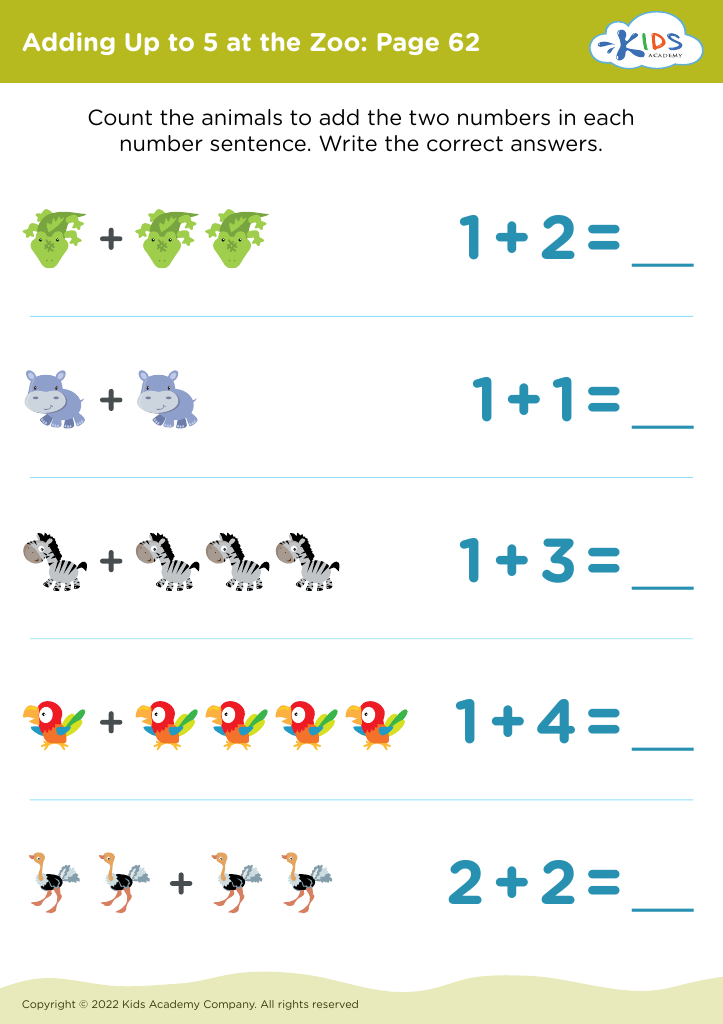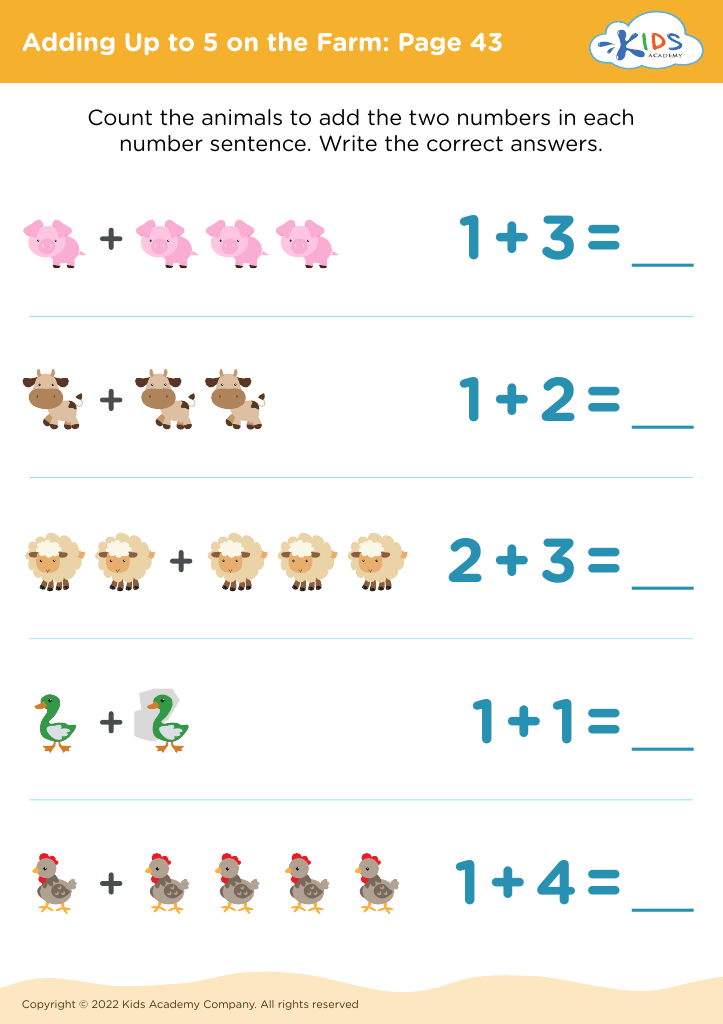Numeracy development Addition Worksheets for 5-Year-Olds
3 filtered results
-
From - To
Nurture early math skills with our Numeracy Development Addition Worksheets for 5-Year-Olds. Carefully designed to align with educational standards, these engaging worksheets support young learners in mastering basic addition. Vibrant visuals and interactive activities make learning both fun and effective as children solve simple sums and identify numbers. Perfect for introducing foundational concepts, these printables promote confidence and curiosity in young mathematicians. Ideal for classroom or at-home use, parents and teachers will find these resources indispensable for encouraging numeracy proficiency. Explore our collection today and set your child on the path to mathematical success!


Adding Flower Petals Worksheet
Numeracy development is crucial for 5-year-olds as it lays the foundation for their future learning and success in mathematics. When parents and teachers focus on helping children understand addition at this early age, they cultivate essential cognitive skills and promote a positive attitude towards math. Addition is one of the basic building blocks of mathematics. Learning this skill helps children develop problem-solving abilities, logical reasoning, and critical thinking.
Understanding addition aids in everyday tasks such as handling money, telling time, measuring ingredients for recipes, and more. It also builds confidence as children learn to solve problems independently. Moreover, early skills in addition are predictive of later academic achievements not only in math but across other subjects as well because math promotes analytical thinking that is applicable in all domains of life.
Engaging children with fun and interactive addition activities also stimulates their interest and curiosity, encouraging a lifelong love for learning. Parents and teachers should therefore ensure children get ample opportunities to practice addition through games, hands-on activities, and real-life examples.
Ultimately, nurturing numeracy development, even simple addition, equips children with the fundamental tools necessary for later academic success and helps them navigate the world more effectively.

 Assign to My Students
Assign to My Students


















